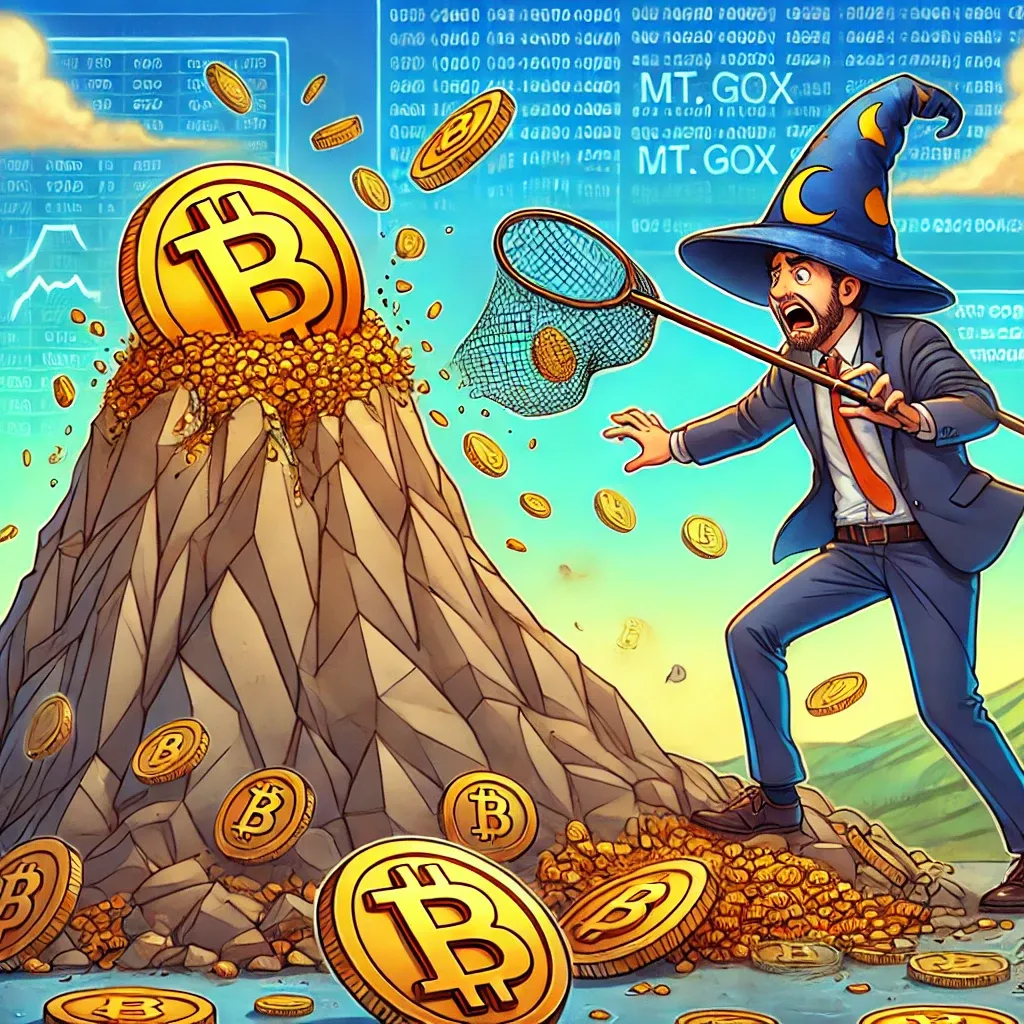The world of cryptocurrency is no stranger to drama, but even in this rollercoaster of an industry, few events compare to the epic collapse of Mt. Gox. Was it a tragic tale of bad luck or a preventable disaster? Buckle up as we explore the rise and fall of Mt. Gox, the crypto catastrophe that left everyone asking, "Mt. Gox or Mt. Oops?"
The Rise of Mt. Gox: A Mountain of Hope
What Was Mt. Gox?
Mt. Gox, short for "Magic: The Gathering Online Exchange," began its life as a platform for trading Magic: The Gathering cards. In 2010, it pivoted to something far more ambitious: becoming the largest Bitcoin exchange in the world. By 2013, Mt. Gox was handling over 70% of all Bitcoin transactions globally. Impressive, right?
Why Did It Matter?
At its peak, Mt. Gox symbolized the promise of a decentralized financial future. Bitcoin enthusiasts and early adopters flocked to the platform, dreaming of a world where middlemen were obsolete, and financial freedom reigned supreme. Spoiler alert: things didn’t quite pan out that way.
The Fall: From Blockchain to Blame Chain
The $460 Million Question: What Went Wrong?
Mt. Gox’s collapse was not just a stumble—it was a faceplant of epic proportions. In 2014, the exchange announced it had lost 850,000 Bitcoins (worth about $460 million at the time). To put it in perspective, that’s like misplacing the GDP of a small country. So, what happened?
Security Holes Bigger Than a Bitcoin Block
Mt. Gox’s systems were riddled with vulnerabilities. Hackers exploited these flaws to siphon off Bitcoin, like digital pirates plundering a treasure chest.
Leadership: In Over Their Heads
CEO Mark Karpelès, affectionately (or not-so-affectionately) nicknamed "Magical Tux," wasn’t exactly the poster child for sound financial management. Allegations of mismanagement and negligence piled up faster than unconfirmed transactions in a Bitcoin mempool.
The Fallout: Crypto Chaos Ensues
Trust Issues in the Blockchain Community
Mt. Gox’s implosion sent shockwaves through the crypto community. Trust in exchanges plummeted, and critics gleefully pointed fingers, calling Bitcoin a scam.
Regulation Steps In
Governments worldwide started paying closer attention to crypto exchanges, realizing that the Wild West of finance might need a sheriff or two.
Lessons Learned: Avoiding Another Mt. Oops
Security Is Not Optional
If Mt. Gox taught us anything, it’s that security in the crypto world is as vital as oxygen. Here are some tips:
-
Use multi-signature wallets for added protection.
-
Conduct regular security audits.
-
Don’t store all your crypto on an exchange ("Not your keys, not your coins!").
Transparency Is Key
Crypto exchanges must prioritize transparency to build trust. Clear communication, independent audits, and proof-of-reserves are now the gold standard.
Decentralization Wins the Day
The Mt. Gox saga reinforced the importance of decentralized solutions. Platforms like DeFi and non-custodial wallets are gaining traction, offering users more control over their assets.
The Silver Lining: Crypto Bounces Back
While Mt. Gox’s collapse was a dark chapter, it wasn’t the end of the story. The crypto community has proven remarkably resilient, learning from its mistakes and pushing the industry forward. Bitcoin hit new all-time highs, decentralized exchanges flourished, and blockchain technology expanded into new frontiers.
Conclusion: Mt. Gox’s Legacy
Mt. Gox may forever be remembered as the "Mt. Oops" of cryptocurrency, but its collapse wasn’t in vain. It served as a harsh but necessary wake-up call, forcing the industry to evolve and mature. Today, as we trade, hodl, and dream of Lambo-filled futures, let’s not forget the lessons of Mt. Gox—and maybe, just maybe, let’s laugh a little along the way.
